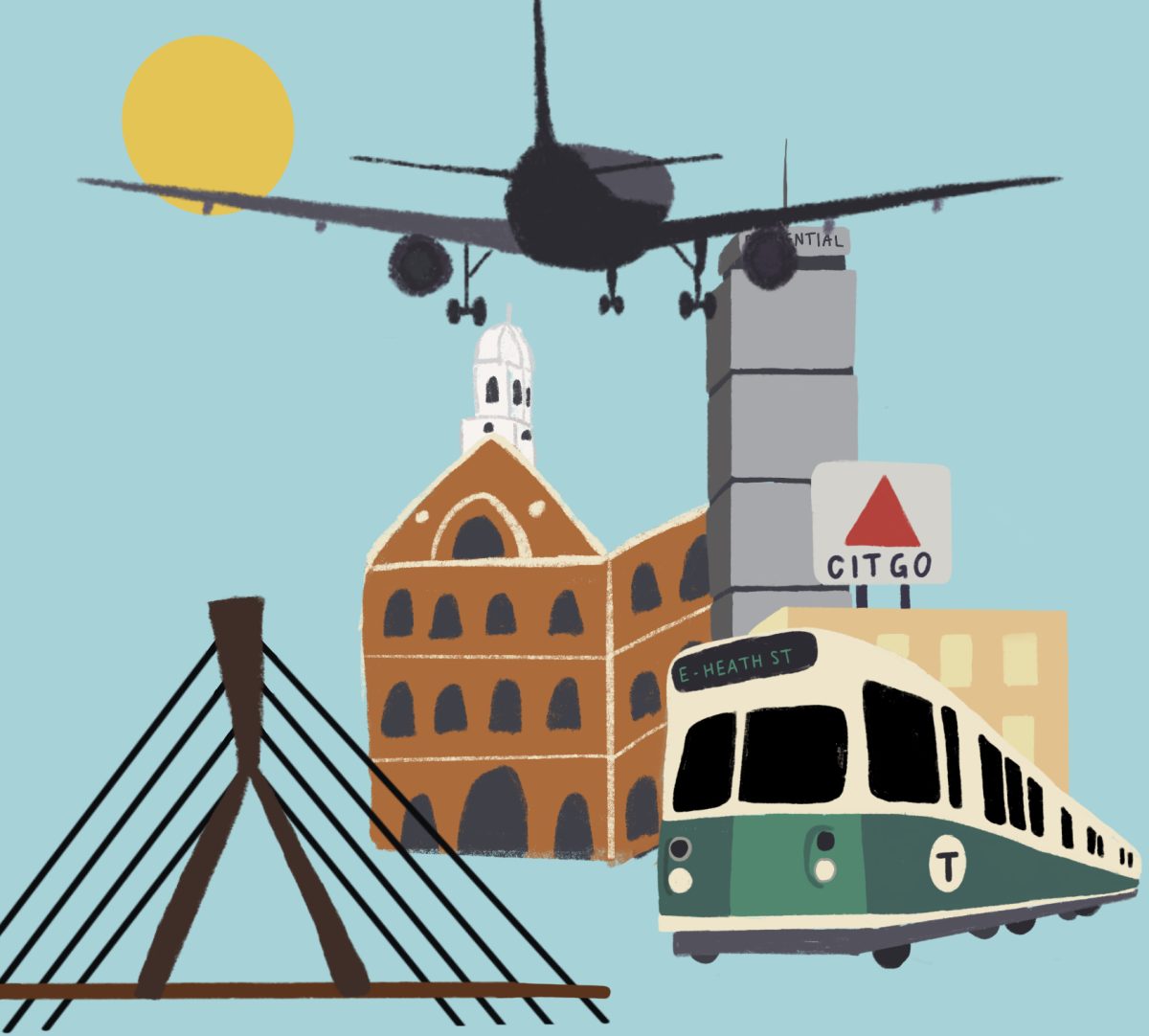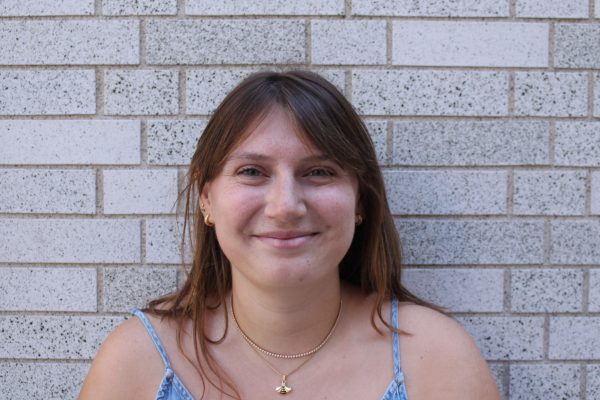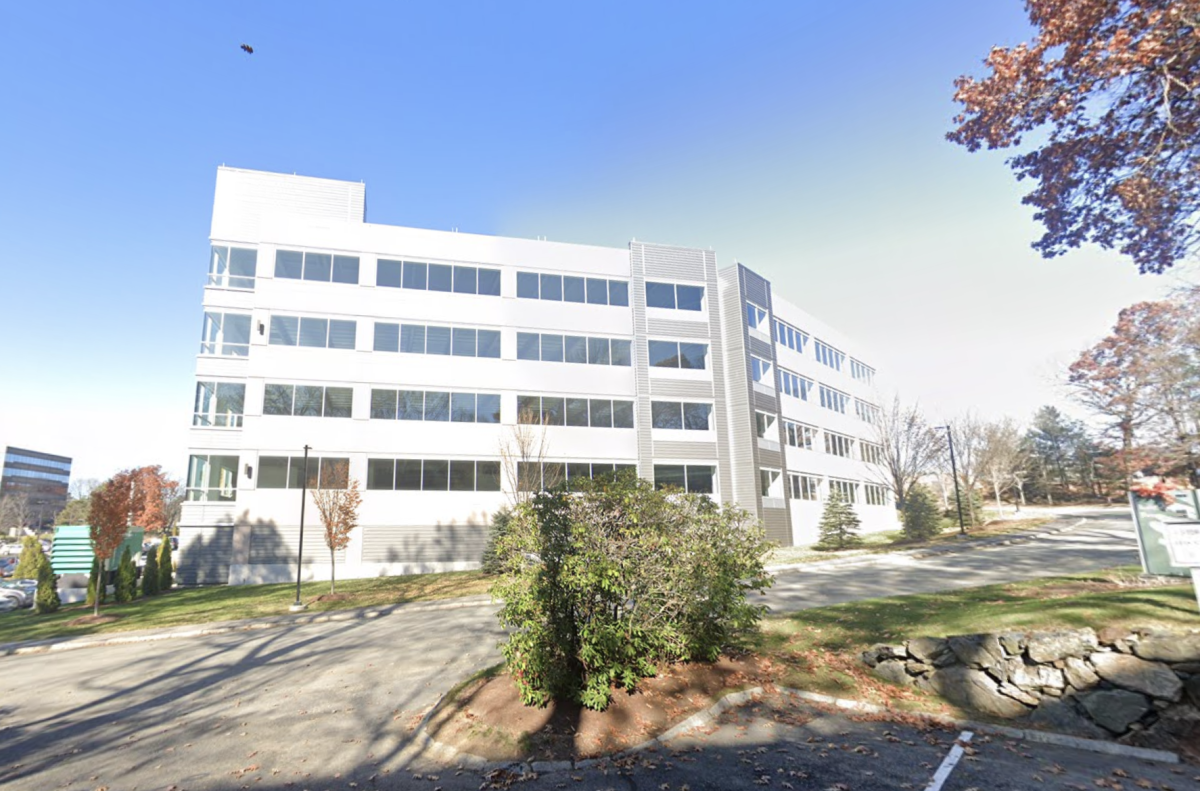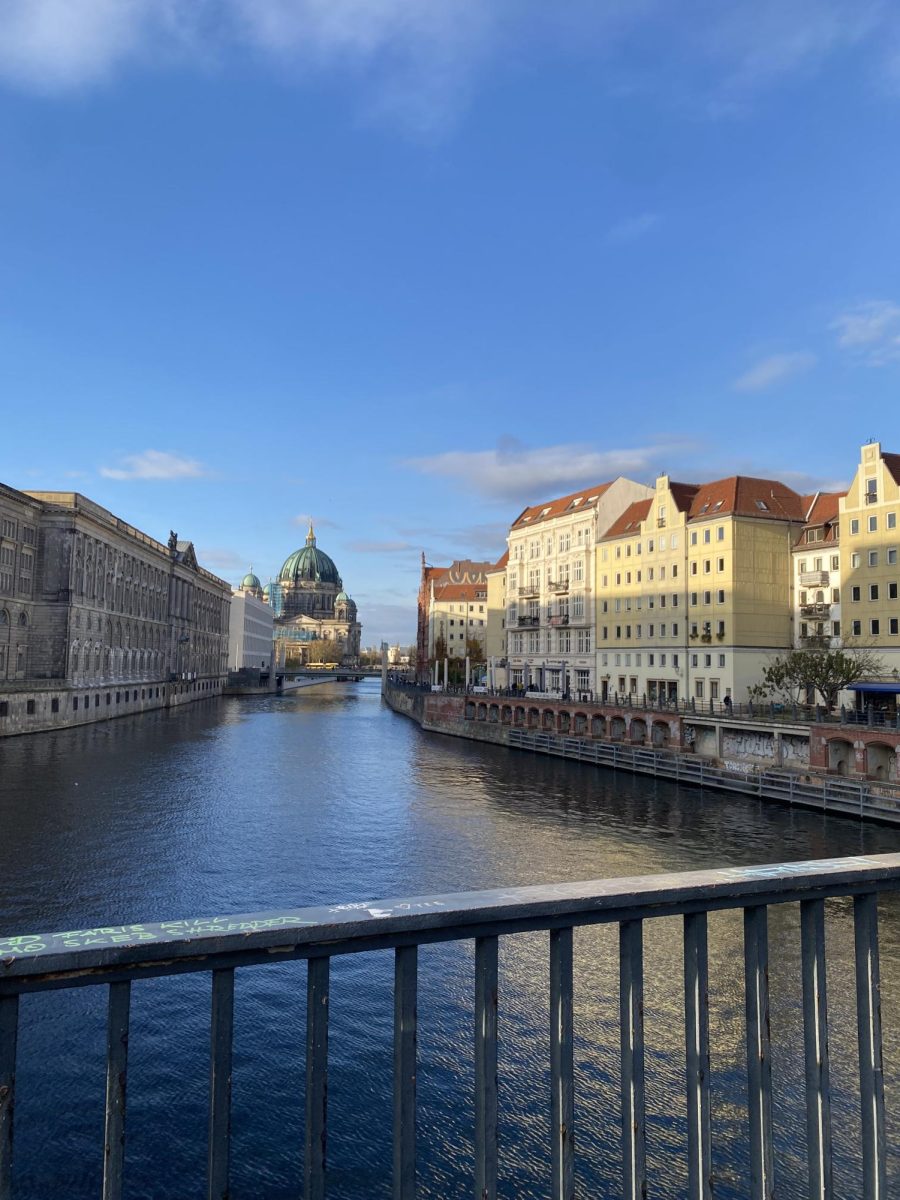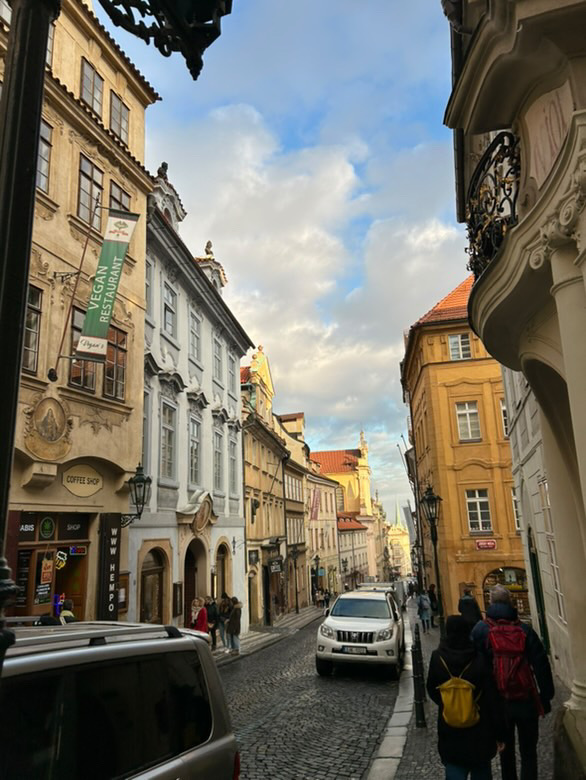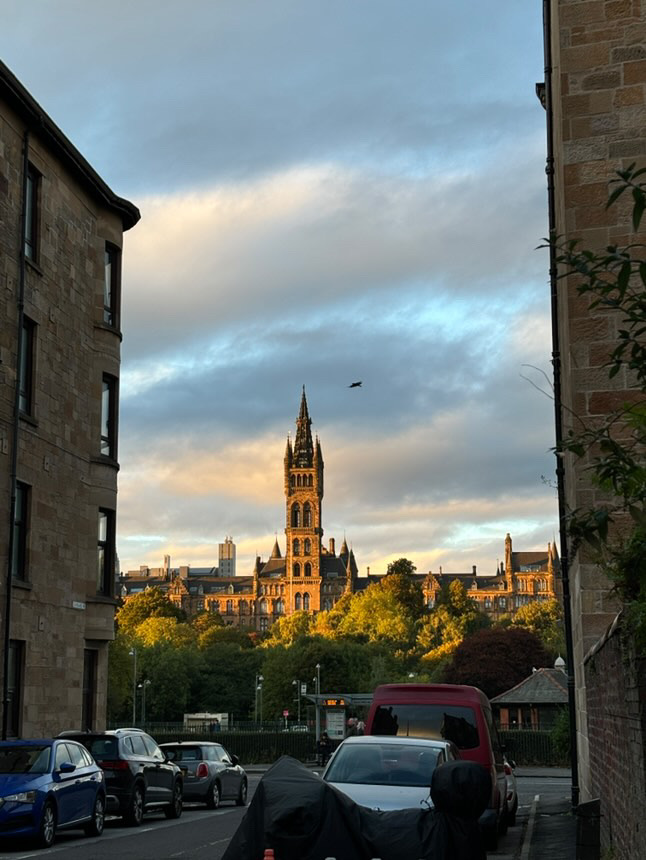On Sept. 6, Fenway’s MGM Music Hall opened its doors to Northeastern’s 125th class for convocation. Thousands of first-year students turned the space into a rainbow with brightly colored shirts and light-up bracelets, listening as President Joseph E. Aoun gave words of wisdom for the following years. However, the class of 2027 was not the only group in attendance.
Scattered among the first-years were students who watched Aoun give a similar speech a year prior — but on a livestream from two different parts of the globe. They are last year’s NU Bound students, who arrived in Boston for the first time this semester after completing a full year at either Northeastern’s London or Oakland campus. Their return raises an interesting question: What is it like to establish yourself at a new campus after spending the past year settling in somewhere else?

NU Bound positions itself as a way for first-year students to immediately take advantage of Northeatern’s global network of campuses and resources. With 89 Northeastern courses in Oakland and 48 in London, students could complete major and NUpath requirements without worrying about transfer equivalency. Northeastern also provided students with housing in their first year, placing Oakland students into on-campus residence halls and London students into a nearby student apartment building.
However, these campuses function independently from the Boston campus, meaning those who participated were disconnected from Boston until their return. Furthermore, any classes taken during NU Bound appear as transfer credits on student transcripts, and students could not use financial aid while on the program. With little information made available other than what was provided on the NU Bound website, many students didn’t know what they were getting into, and even less of an idea of what their return would look like.
Of the differences between campuses, one of the biggest shocks to NU Bound students came in the form of academics.
“London did not prepare me academically whatsoever for Boston,” said Aastha Vyas, a second-year cell and molecular biology major who started in London last year.
As part of their time abroad, students in London had to acclimate to an education system that was unfamiliar to them. Workloads were limited to two or three graded assignments per class. Moderators reviewed anything graded by a professor before scores were released, which could take up to a month in some cases.
The grading scale also differed dramatically. “Passing was a 44% and then an A was a 70%,” said Andrew Mayer, a second-year mechanical engineering major also at the London campus. “But people were fighting for that 44%.”
Issues with classes in London also stemmed from class organization and grievances with professors. “Classes in London are nothing like the classes here,” Vyas said. “They were unorganized, we barely knew about the assignments and [professors] were so ill-prepared.”
These issues relate back to the mergers that added the London and Oakland campuses to Northeastern’s expanding list of locations. Northeastern University London — formerly known as New College of the Humanities — has rapidly expanded in the almost five years since merging with Northeastern by moving into a new facility and adding new degree programs that cater to STEM students.
This growth has been the root of the problem for many. “Especially in the design school, they had a lot of new hires,” said Nicole Schubert, a second-year business administration and graphic design combined major who spent last year on the Oakland campus. “A lot of the old professors were actually good, but the new hires weren’t that great.”
Returning to the Boston campus proved to be beneficial for some students following a year of academic hiccups. Students from the London campus found it easier to adjust to the structures and workloads of their classes because Northeastern’s Boston campus uses an academic system more familiar to them, they said.
“With how rough [the British] system is and how unforgiving it is…it has made the Boston campus feel a little more relaxed academically,” Mayer said.
NU Bound students have also flourished socially since matriculating to the Boston campus. Studies on transfer students in the past have shown how common feelings of social isolation are after starting classes in a new university, but students already on the Boston campus have been welcoming to the NU Bound transfers, students said.
“Finding people in my classes was a lot easier than I thought it was going to be,” Vyas said. “I really do like the community. Everyone here has been so sweet.”
Some returning students have found the larger student population contributed to their social success. Although Northeastern’s Boston campus is home to over 17,000 undergraduates, Northeastern University London and Mills College at Northeastern only had 700 NU Bound students between campuses.
Access to a larger student population has been beneficial for those looking to expand their social circles outside of the NU Bound bubble.
“It’s been nice to meet new people on the Boston campus because when you’re on the Oakland campus, you would interact with the same people over and over again,” Schubert said.
Many incoming students had the luxury of keeping their social circles the same as they were during NU Bound.
“All the friends I currently have are because of the NU Bound program,” Mayer said. “I haven’t really felt the need to branch off.”
For the most part, changing campuses has been a relatively smooth experience, Schubert said. “My biggest concern was dealing with the cold weather,” she said. However, this does not mean the integration has been problem-free.
Complications with the return to Boston started before NU Bound students had left their respective campuses. According to students, this was largely due to a lack of communication between the Boston campus and NU Bound participants.
Students reportedly struggled to contact their Boston academic advisers, and on-campus academic advisers in London and Oakland were not equipped to help select courses that would aid students’ matriculation to Boston. This was especially apparent for Vyas, who faced issues with her pre-med requirements early on.
“I couldn’t take any of my essential [pre-med] courses in London, which I didn’t know until I was in London,” she said.
Communication issues also manifested during the housing selection process.
“It was like one general email and then another one later,” Mayer said. “It wasn’t as comprehensive as we thought it would be.” Due to poor lottery numbers, those who did choose to live on campus are mainly split between International Village and the Sheraton Boston Hotel.
Many of last year’s NU Bound students are living off campus in Boston, but information about safe areas to rent or leasing offices to contact was not made available.
“I wish they did a better job at giving us some help on how to find off-campus housing because I would’ve loved that help,” Vyas said.
Northeastern did provide resources to ease the transition, such as informational newsletters prior to move-in day and an orientation specific to NU Bound and other transfer students. NU Bound students were also required to attend this year’s convocation and participate in certain welcome week activities. However, students criticized how effective these activities, specifically orientation, were at familiarizing them with the Boston campus and community.
“I think the orientation we had here was pretty much the exact orientation we had in Oakland,” Schubert said.
Starting this year, the NU Bound program has been replaced by the Global Scholars program, which starts participants in either Boston, London or Oakland for their first semester before switching them to another campus for their second.
The former NU Bound students believe that better communication could solve the problems they had with their integration and improve it for the Global Scholars students.
“I just wish Boston communicated with us more,” Vyas said. “That’s the only thing I wish was done differently.”
Despite issues with the program, former NU Bound students urge future classes to take advantage of the year abroad and what it has to offer. When asked if he had any advice for this year’s Global Scholars students, Mayer said, “Enjoy it as much as you can, because it is such a cool experience.”


